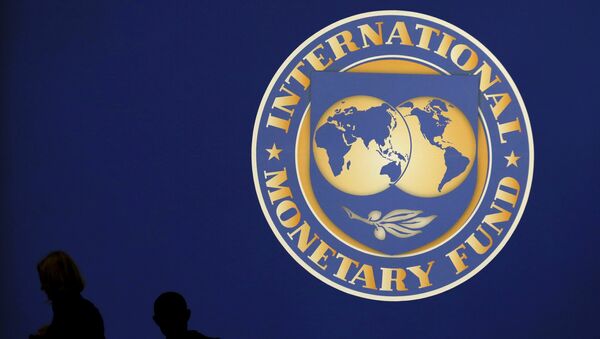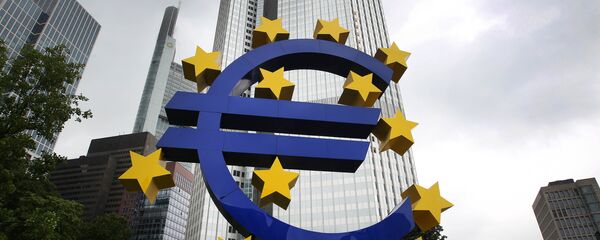Kristian Rouz — The managing director of the International Monetary Fund (IMF), Christine Lagarde, says a common eurozone budget must have mechanisms to prevent the unfair redistribution of national wealth from wealthy to poor countries.
Lagarde expressed her preliminary approval of the proposed European fiscal union several weeks ago.
She stressed that the joint budget must serve for fiscal purposes, such as conducting a coordinated fiscal policy within the eurozone by establishing coordinated levels of taxation and budget spending. This would complement the European Central Bank's (ECB) monetary policies, allowing for faster economic growth in the eurozone.
READ MORE: Eurozone 'Always In Danger and Reforms Have Not Gone Far Enough' — Professor
But Lagarde warned against turning the common budget into a supranational lending or development facility and said the budget must not drain resources from wealthy countries of northern Europe, forwarding money flows towards the European south.
"This centralized budget capacity does not need to become a payment facility," Lagarde said. "It can very well have disciplinary conditions attached."
Lagarde said such conditions could include fiscal discipline, which would mean establishing coordinated, fixed spending requirements for each eurozone member state.
The common budget could also be used for advancing economic reforms in certain countries in order to narrow the differences in economic development between the European north and south.
Lagarde, however, didn't provide any additional details on her view of the much-debated fiscal union.
READ MORE: Parts of EU Budget Tailor-Made to Punish Countries Like Hungary — Journalist
French President Emmanuel Macron and German Chancellor Angela Merkel are currently ironing out the details of the agreement, after having previously agreed to establish a common eurozone budget. The two leaders had stressed that this would take the European integration project to the next level, allowing the bloc to withstand economic crises.
These more advanced nations fear the common budget would have a similar mandate to the European Stability Mechanism (ESM), which is used as bailout money for struggling economies — such as Greece — mainly at the expense of taxpayers in countries like Germany.
"The EU needs to under-promise and over-deliver," Dutch Prime Minister Mark Rutte told the European Parliament last month. "For some, an ‘ever closer union' is still a goal in itself. Not for me. ‘Unity' and ‘ever closer union' are not the same."
The proposals made by Macron and Merkel, however, do have some conditions attached to the membership of the fiscal union, and the two leaders said these conditions would also be applicable in cases when a member state requires access to ESM funds.
READ MORE: 'Brussels Without Shame': EU Budget Chief Gets Roasted for Lecturing Italy
Another sticking point is the French-German proposal to finance the joint budget by taxing financial transactions. Some member states have said this will increase the costs of bureaucracy and could exacerbate the lingering "deficit of democracy" in the EU.
The common budget could be launched as soon as 2021 — if Merkel and Macron reach a compromise with the Netherlands-led coalition.





